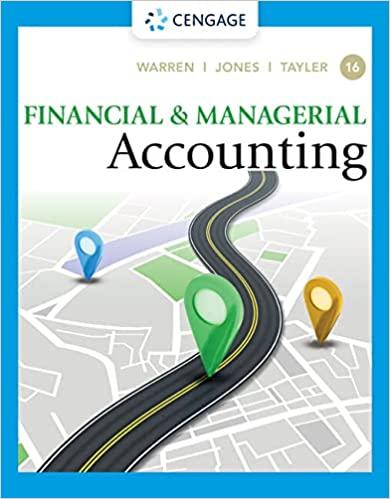Question
Career counselling: Question 1: How can career counselling interventions for foster and asylum-seeking youth extend beyond addressing immediate challenges to promote long-term resilience and develop
Career counselling:
Question 1:
How can career counselling interventions for foster and asylum-seeking youth extend beyond addressing immediate challenges to promote long-term resilience and develop self-advocacy skills?
Question 2:
How can career counselling interventions promote not only emotional well-being, but also a sense of agency and self-worth among all youth, including youth with disabilities and youth in foster care, in their pursuit of academic and career success?
References:
Career Counseling for Children and Youth
Throughout childhood and adolescence, children go through a wide range of life events that influence their academic and career development. Specifically, the interrelation between all facets of a child's learning experiences can influence their physical, emotional, social, and cognitive developments (Biddle et al., 2018). However, the growth and development is not without its challenges, as students face countless uncertainties and needs that must be fulfilled throughout their learning journeys (Stevenson, 2017). Therefore, career counseling for children and youth has been deemed prevalent and beneficial in addressing those needs.
According to Chen & Chan (2014), career guidance is essential for the overall development of youth with disabilities. This population must be guided in recognizing and applying their strengths and developing adaptive skills that utilize their neurodivergence. Career counseling should emphasize practicing social skills involving reading facial expressions and body language along with verbal self-expression, especially for those with non-verbal learning disabilities. They can be empowered to lead independent lives through a well-designed career counseling program, ensuring a better future.
As Linde et al. (2021) and Stevenson (2017) emphasized, career counseling is an essential support system for foster and asylum-seeking kids. Children in foster care experience instability and other difficulties as they mature, thus demanding efficient interventions. The main goals of career counseling includes supporting clients in making career decisions and promoting mental wellbeing. Counselors must place a strong emphasis on career awareness and to overcome self-defeating ideas in order to navigate their job trajectories successfully. Similarly, youth who are seeking refuge confront obstacles in the immigration process and are frequently restricted from education and employment prospects due to discrimination. Counselors emphasize the need for educational specialists to understand grading procedures, immigration laws, and other forms of assistance to support youth in overcoming these challenges.
Intervention and guidance for youth with disabilities and youth in foster care plays a pivotal role in breaking the cycle of academic and career developmental challenges. When applied to these populations, the Chaos Theory of Challenges (CTC) highlights the complex, dynamic, and unpredictable nature of the academic and career journey and its effects on one's mental wellbeing (Pryor & Bright, 2011). For youths facing unique challenges and uncertainties, the CTC validates the difficulties they experience and accentuates the need for qualities like resilience and adaptability in response to their career progression, which is constantly changing and does not follow a linear progression. Such interventions are thus essential in assisting the youth population in dispelling self-defeating beliefs and nurturing mental wellbeing.
Likewise, the challenges experienced by the same youth populations are also applicable to Krumboltz's Happenstance Learning Theory of Career Development, which proposes that unplanned events occur daily and deeply impact individuals' lives (Krumboltz et al., 2013). For youth with disabilities and youth in foster care especially, employing the Happenstance Learning Theory is particularly empowering as it allows individuals to discover their strengths, interests, and talents, which can boost their self-esteem and establish confidence. It also encourages empowerment through exploration, emphasizes the importance of expanding social networks, and highlights the need of an open and flexible mindset in response to changing circumstances in one's career plans. Thus, incorporating the principles of the Happenstance Learning Theory and the Chaos Theory of Challenges into interventions for these youth can be instrumental in promoting emotional wellbeing. By empowering them to adapt, build support networks, and cultivate positive outlooks, career counselors are able to assist these individuals in not only their career development, but also in achieving a greater sense of self-worth and fulfillment.
Biddle, K. A. G., Harven, A. M., & Hudley, C. (2018). Careers in child and adolescent development: A student's guide to working in the Field (1st ed.). Routledge.
Chen, C. P., & Chan, J. (2014). Career guidance for learning-disabled youth. International Journal for Educational and Vocational Guidance, 14(3), 275-291. https://doi.org/10.1007/s10775-014-9270-6Links to an external site.
Krumboltz, J. D., Foley, P. F., & Cotter, E. W. (2013). Applying the Happenstance Learning Theory to Involuntary Career Transitions. The Career Development Quarterly, 61(1), 15-26. https://www.proquest.com/docview/1325039954?accountid=14656&pq-origsite=summonLinks to an external site.
Linde, J., Lindgren, J., & Sundelin, . (2021). High-Stakes counselling: when career counselling may lead to continuing residence or deportation of asylum-seeking youths. British Journal of Sociology of Education, 42(5-6), 898-913. https://doi.org/10.1080/01425692.2021.1941766Links to an external site.
Pryor, R. G., & Bright, J. E. (2011). the chaos theory of careers. Journal of Employment Counseling, 48(4), 163-166. https://www.proquest.com/docview/912809020?pq-origsite=summon&accountid=14656Links to an external site.
Stevenson, B. J. (2017). Developing a career counseling intervention program for foster youth. Journal of Employment Counseling, 54(2), 75-86. https://doi.org/10.1002/joec.12055Links to an external site.
Step by Step Solution
There are 3 Steps involved in it
Step: 1

Get Instant Access with AI-Powered Solutions
See step-by-step solutions with expert insights and AI powered tools for academic success
Step: 2

Step: 3

Ace Your Homework with AI
Get the answers you need in no time with our AI-driven, step-by-step assistance
Get Started


